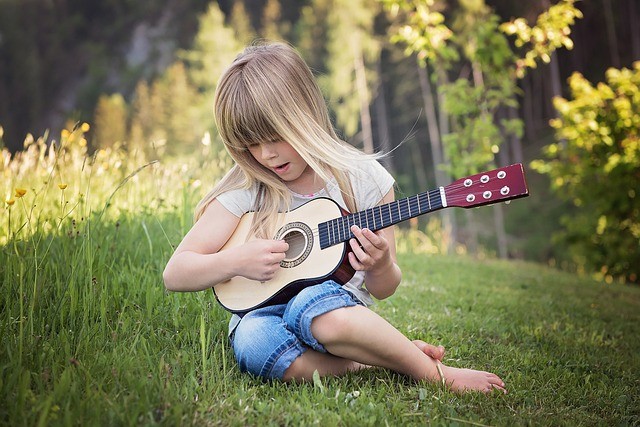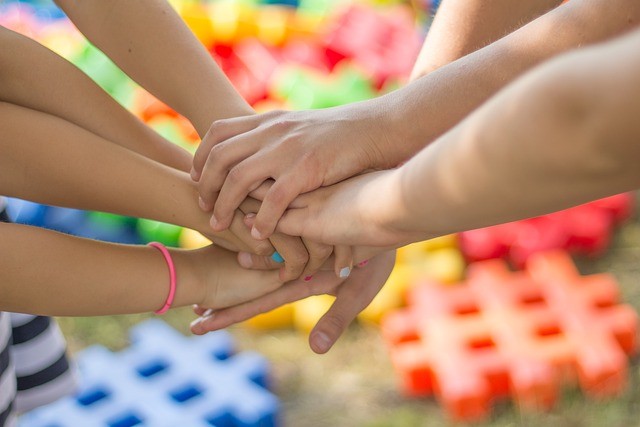When a toddler is having a tantrum, it can be difficult to hold in a raised voice. This is especially difficult if the tantrum happens in public, perhaps out on the street when you’re trying to walk home or maybe in the middle of a supermarket.
Put simply, at this stage, toddlers simply don’t understand the world or their limitations enough to know what they should or shouldn’t do without guidance. Of course, this doesn’t make it any less frustrating as an adult when your toddler is screaming, throwing themselves on the floor, or generally doing something which they shouldn’t be doing.
It might sound like stating the obvious, or perhaps stating a truth that is extremely difficult to achieve, but the first step to achieving adequate discipline is to remain calm. The more stressed and overwhelmed you become, the more your toddler will feed off the reaction. Calmness is key, even if you’re not feeling it inside.
Many parents find it very easy to simply jump towards the yelling or even hitting stage of disciplining a toddler. There are consistent studies which have shown that yelling and hitting are very negative and ineffective ways to discipline a toddler. Firstly, it simply causes them to normalise this negative behaviour, and over time they will tune out your yelling or hitting and assume it’s a normal reaction. Of course it isn’t, but your toddler isn’t old enough to understand this yet, and by the time they are, they’ll have got far too used to it.
Secondly, hitting and yelling can simply make matters worse, causing your toddler to engage in more misbehaving and tantrums.
Being yelled at or even hit the first time will have an impact, but after the second, third, or fourth time, your child will simply tune out the impact and carry on as before. Put simply, you’re wasting your time and making things far worse.
In addition, if you yell or hit a child for repeatedly doing the same thing, e.g. biting their sibling when they have an disagreement, they’re not going to learn other tactics to resolve the issue in a better way. For instance, they won’t have the chance to understand that biting isn’t the way to resolve the problem, and that explaining how they feel is a better option. Yes, a toddler won’t understand this at first, but if you don’t give them the chance to learn, how will they ever know?
There are far more effective ways to discipline your toddler without resorting to hitting or yelling. These methods require patience and calmness, which may be tested at times, but it’s important to remember and see the bigger picture.
Set Rules Which Are Clear And Easy For Your Child to Understand
It might seem difficult to get a toddler to understand rules, but the clearer they are and the more you enforce them, the more of a habit they will become for your toddler. Over time, your toddler will begin to learn that when he or she breaks the rules, consequences follow. By doing this, they’re not testing their boundaries or doing something they’re not sure of, they’re knowingly breaking a rule which they know is going to lead to them being disciplined.
Sit your child down and explain the rules, making them as clear as possible and not overloading them with a huge list. One or two is enough. For instance, rule 1 could be ‘do not hit your brother’, etc.
You should also reinforce these rules on a regular basis by reminding your toddler about them. Something like “we have a rule don’t we? Don’t hit your brother”. You’re less likely to start yelling or hitting your toddler if they break the rule because you know what to do – straight to the consequence you’ve decided upon, e.g. time out in their room, straight to bed, no TV, etc. This consequence helps your child to understand the rules and to do better in the future.
Of course, you have to make sure that the consequences you decide upon are pertinent to your child. For instance, if your child doesn’t really like watching movies on the iPad, they’re not going to be too bothered at that particular consequence. It has to be something that will impact on their enjoyment and cause them to think about what they’ve done. If they love ice cream, the consequence could be no ice cream for two days, etc.
Remember to Praise When They do Well
Part and parcel of discipline is remembering to provide praise when they do well. It can’t all be about negative consequences when they do something they shouldn’t. When your toddler does something well, e.g. when they cuddle their brother rather than hitting them, praise that action, say something like “that’s lovely that you cuddled your brother”.
Toddlers love positive praise, so make sure that when they deserve it, you give it. However, don’t simply heap praise on them for no reason – they have to learn that when they do good things, they’re praised and when they do bad things, there are consequences. It’s about being consistent, and any dip in consistency will lead to your toddler acting out, simply because they’re confused and they’re starting to push against your boundaries once more.
Use a Rewards System
Toddlers often use behaviour that is attention seeking, which can lead to negative behaviour and tantrums when they don’t get what they want. A good way to reduce this type of situation is to use a rewards system.
A good option for toddlers is to use a sticker type of system. When they do something well, they get a sticker on the chart, with plenty of praise to go alongside it. When they do something negative, a sticker is taken away from the chart, with an explanation of what they did and why it deserved the sticker to be taken away. When they have perhaps 10 stickers in a row, they have a treat, such as their favourite chocolate bar, etc.
Reward systems are particularly effective for toddlers because it helps them to recognise the difference between right and wrong pretty quickly. However, you must make sure that a sticker is awarded or taken away for the right reasons and that an explanation of why is included. This helps connections to develop in your child’s mind as to what is good behaviour versus what is bad.
Consequences Are More Likely to Trigger a Response
Yelling and hitting your child will have an impact the first time, that’s a truth, but after that they’re gong to lose their strength and it will become almost normal for your child. It’s not ideal for you child to view hitting and yelling as normal!
A negative consequence which affects your child in a different way is far more effective. Having something they love taken away from them for 24 hours, such as their favourite toy, the iPad, or not having their favourite treat for a few days, is more likely to make them think about their actions, even at this young age.
However, if you’re going to use a negative consequence, you have to follow through with it when your child does something which is negative too. Avoid giving warnings, because this simply shows them that you don’t mean what you say. When they do the thing that they know they shouldn’t do, use the consequence and tell them why. If they do something new which is bad behaviour, use the consequence and again, explain why it’s bad for them to do that.
If your child consistently breaks a rule and you know that they’re aware of it being negative, simply carry out the consequence, e.g. take away their toy or ban the TV, and do it in a calm manner, without becoming upset or annoyed and without raising your voice. It’s also a good idea not to even look at them, because sometimes toddlers can do this to trigger a reaction. They’re trying to push you, evoke you into shouting, because they’re experimenting with where their safe ground versus their boundaries are.
Of course, it’s easy to feel like you’re on the verge of shouting or losing your temper. You’re human, so don’t feel bad if you have to bite your tongue at the start. If you really need to, take yourself away from the room for a few minutes, take a few calming breaths, and then return to the room and carry out the consequence you’ve set in place. All you need to do in that case is say “you know that throwing your food on the floor is bad. When you do bad things you have to be punished and learn, don’t you? No more TV for today”.
That’s all it takes. No shouting, no hitting, no crying, simply state the behaviour that is unacceptable and dish out the consequence. If your child starts crying or having a tantrum against the punishment, don’t pay any attention to it and walk away from the room. Over time, your child will learn how to regulate their behaviour without the need for any intervention from you.




